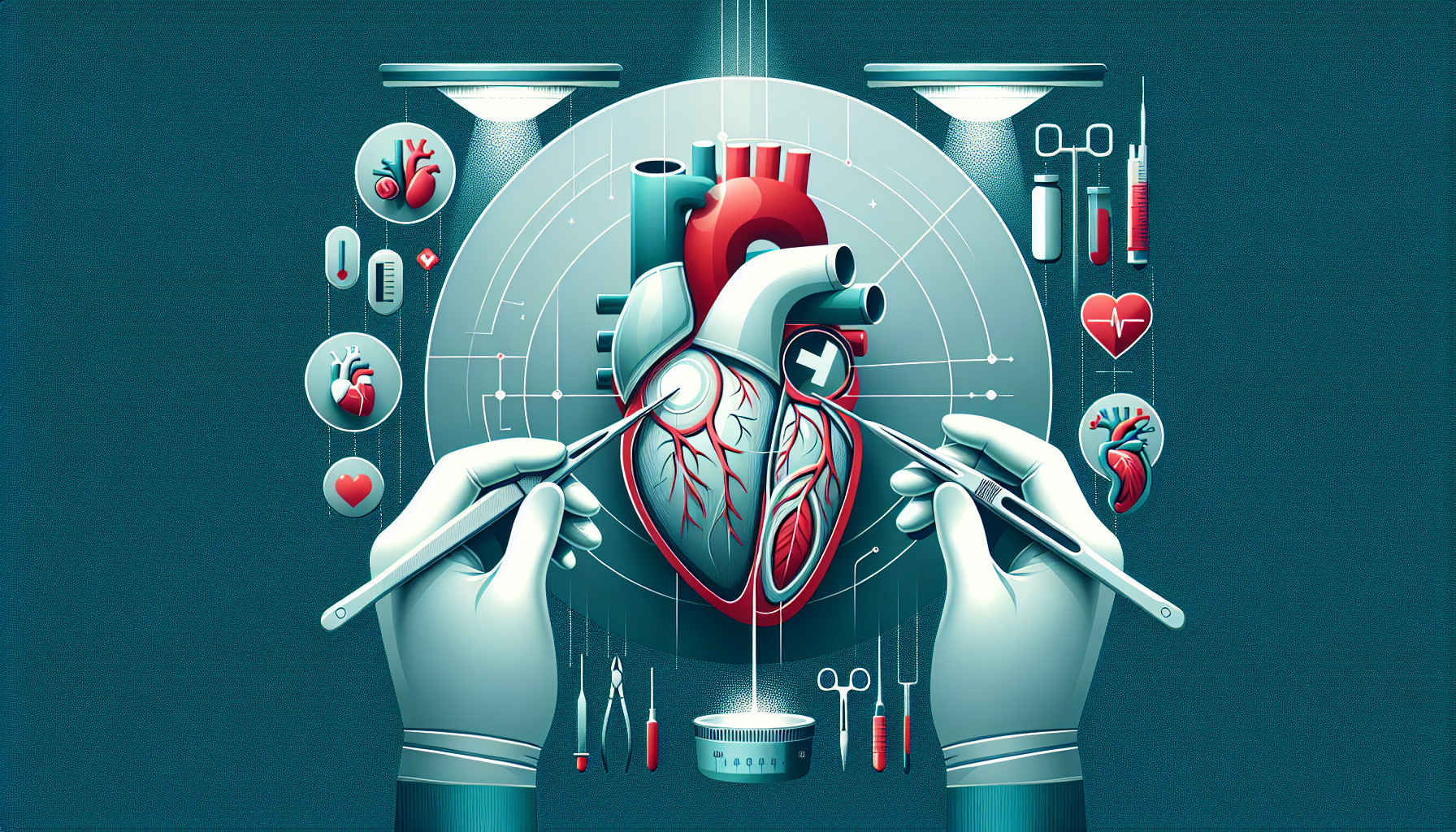Our Summary
This research paper looks at the impact of invasive heart surgery in sheep, which are commonly used in preclinical trials for testing new heart valves. The study focuses on sham mitral and aortic valve replacement surgeries, where the procedure is simulated but the valve is not actually replaced. The researchers studied six control sheep (which underwent no surgery), six who had sham mitral valve replacements, and six who had sham aortic valve replacements. They analyzed blood work and other physical effects and then performed autopsies after 90 days.
The most common issue found was renal infarcts, which are small, dead areas of tissue in the kidneys. On average, the control sheep had 4.7 infarcts, the mitral valve group had 2.5, and the aortic valve group had 5.8. The number of infarcts was closely linked to the total estimated area of dead kidney tissue. The research also found that additional heart interventions significantly increased the number of renal infarcts.
However, the study found no link between the number of renal infarcts and the time spent on cardiopulmonary bypass (a machine that takes over the function of the heart and lungs during surgery), or between the two different valve procedures.
These findings are important as they provide a baseline of what to expect from the invasive surgery and cardiopulmonary bypass in sheep. This information will help in future trials of new heart valves, to separate any safety issues caused by the device itself from those caused by the surgical procedure or naturally occurring in sheep.
FAQs
- What were the most common issues found in the sheep after the invasive heart surgery?
- Did the study find any link between the number of renal infarcts and the time spent on cardiopulmonary bypass?
- How will these findings assist in future trials of new heart valves?
Doctor’s Tip
One helpful tip a doctor might give to a patient considering valve replacement surgery is to discuss the potential risks and complications, such as renal infarcts, with their healthcare team. It is important for patients to be informed and prepared for any potential outcomes of the surgery. Additionally, following post-operative care instructions, attending follow-up appointments, and maintaining a healthy lifestyle can help optimize recovery and minimize complications.
Suitable For
Patients who are typically recommended valve replacement are those who have severe valve disease that is causing symptoms such as chest pain, shortness of breath, fatigue, or fainting. Valve replacement may also be recommended for patients with severe valve disease that is causing damage to the heart muscle or leading to heart failure. Additionally, valve replacement may be recommended for patients who have a valve that is not functioning properly and is not able to be repaired. It is important for patients to discuss their individual case with their healthcare provider to determine if valve replacement is the best treatment option for them.
Timeline
Before valve replacement surgery:
- Patient undergoes diagnostic tests such as echocardiogram, cardiac catheterization, and blood tests to determine the extent of valve disease.
- Patient may be prescribed medications to manage symptoms and improve heart function.
- Patient meets with a cardiac surgeon to discuss the risks and benefits of valve replacement surgery.
- Patient undergoes preoperative preparations such as fasting and medication adjustments.
After valve replacement surgery:
- Patient is monitored closely in the intensive care unit immediately following surgery.
- Patient may experience pain, fatigue, and discomfort in the chest and incision site.
- Patient undergoes physical therapy and rehabilitation to regain strength and mobility.
- Patient is prescribed medications to prevent infection, manage pain, and prevent blood clots.
- Patient attends follow-up appointments with the cardiac surgeon to monitor healing and overall heart function.
- Patient may need to make lifestyle changes such as diet modifications and regular exercise to maintain heart health.
What to Ask Your Doctor
Some questions a patient should ask their doctor about valve replacement surgery may include:
- What are the risks and potential complications associated with valve replacement surgery?
- What is the expected recovery time and rehabilitation process after valve replacement surgery?
- How long will the new valve last and what follow-up care will be necessary?
- Are there any lifestyle changes or restrictions that will need to be made after valve replacement surgery?
- What are the alternatives to valve replacement surgery and why is surgery recommended in my case?
- How experienced is the surgical team in performing valve replacement procedures?
- Will I need to take medication after the surgery, and if so, what are the potential side effects?
- How often will follow-up appointments be needed after the surgery and what will be checked during these appointments?
- Are there any specific warning signs or symptoms to watch out for after valve replacement surgery?
- What is the success rate of valve replacement surgery in patients with similar conditions to mine?
Reference
Authors: Faustich JTS, Carney JP, Lahti MT, Zhang BL, Bianco RW. Journal: Cardiovasc Eng Technol. 2022 Feb;13(1):181-190. doi: 10.1007/s13239-021-00563-6. Epub 2021 Jul 14. PMID: 34263418
